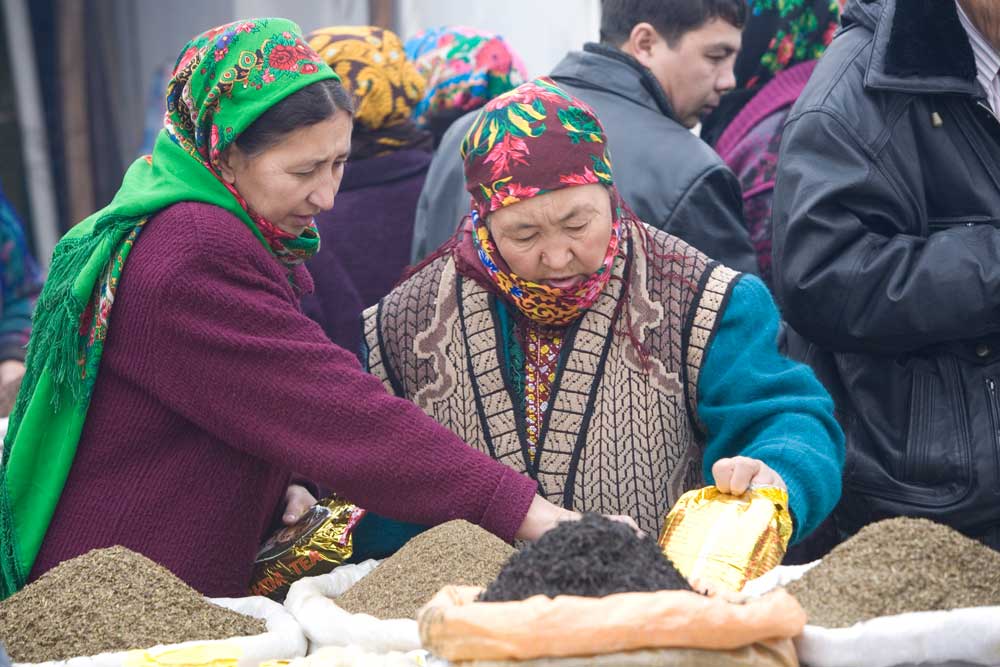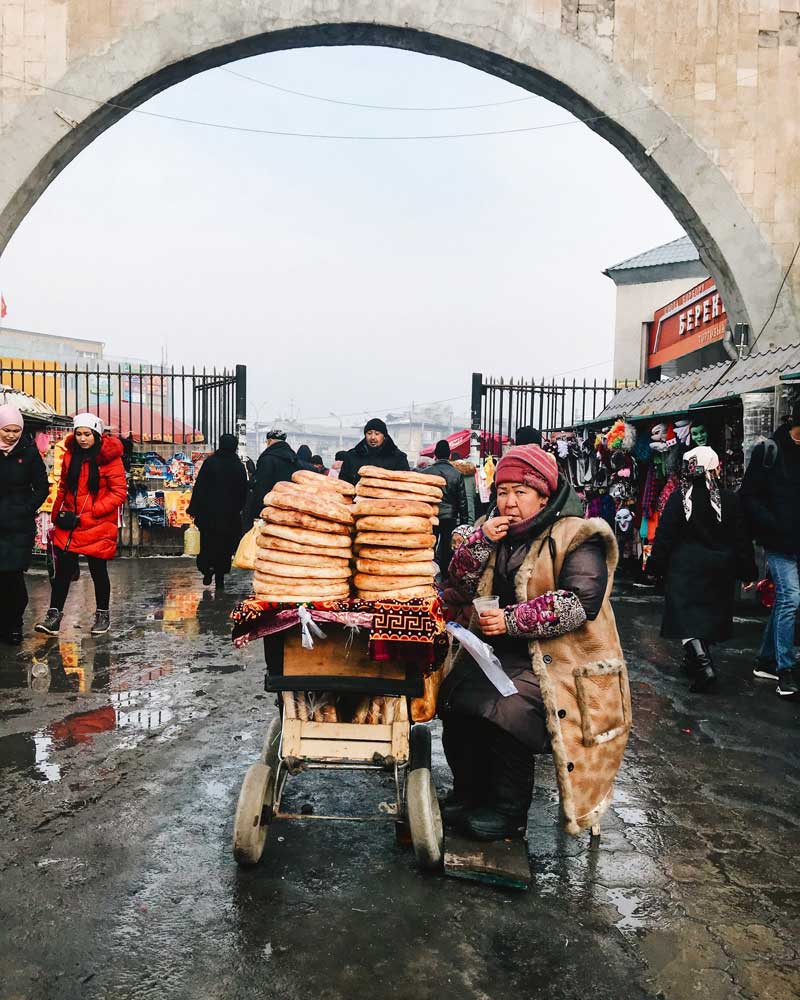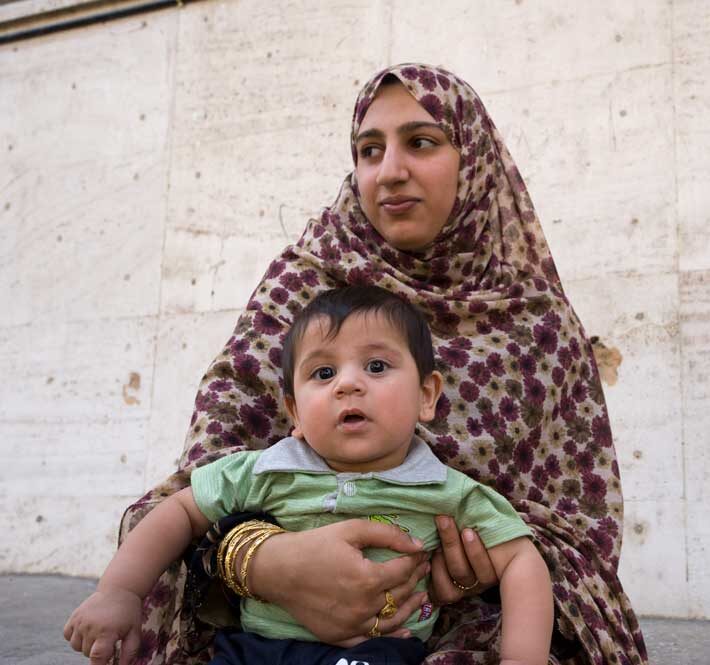
STORIES OF HOPE
Living Behind the Veil:
Being a Woman in Central Asia
She lives in a region marked by elaborate architecture, complex social systems and deeply held customs. Family and community are the fabric of her life. The traditional values that make her story rich and meaningful can also keep her hidden—and never completely free.
Although her story is complex and varied, her heart is the same. Like all women, she longs to belong and discover her purpose in life. She wants to experience unconditional love and achieve success. And like all of us, she needs hope for today and all eternity.
Recently the staff women from our Global Heart Ministries team—who grew up in or currently live in Central Asia—shared what life is like for women in their traditional culture. The team is comprised of women in their 20s to their 50s and comes from various parts of Azerbaijan and Uzbekistan.
Most women experience limited opportunities for education and independence.
Today more young women receive access to education and employment. But their opportunities are still somewhat limited. And their experiences vary widely, depending on their demographic location, family situation, and religious beliefs.
Women living in major cities are more likely to attend a college or university, while women in rural areas have limited access to education. More jobs and career opportunities are also opening up with women able to earn a salary and provide for themselves.


While many women achieve a level of independence, few realize full autonomy. Young women are considered to be under their parents’ authority, even while away at college or working full time. They are expected to live at home until they marry, and their parents must approve before any official engagement is announced. So while society is changing—and many women are enjoying more opportunities—most still feel that cultural barriers hold them back in some way.
They feel pressured to fit the societal mold.
Go to school. Get married. Have kids. Take care of everything at home.
That’s the narrative young women are taught to follow. And if they break the mold, they often face societal ostracism.
Most Central Asian women feel pressured to marry by the time they’re 18 to 20 years old. Soon after marrying they are expected to have children. If a woman struggles with infertility, she may be divorced by her husband.

Many married women live in the shadow of their mother-in-law. It’s not uncommon for young families to live with the husband’s parents. And even if they do manage to achieve independence, the family matriarch can still exert control.
If conflict or jealousy arises between a woman and her mother-in-law, the husband most often sides with his mom. A mother-in-law can even insist a couple divorce if she doesn’t approve of her daughter-in-law or her behavior.
Women often lack a voice at home and in society.
While more young women are finding their voice, many still struggle to stand up and speak out, especially once they’re married. They are taught to maintain the status quo—or else they’ll be shamed for breaking with cultural norms.
Women shoulder the blame for much of what goes wrong in their family and relationships. If a woman breaks off an engagement, even for legitimate reasons, she experiences societal ostracism. If her husband is unfaithful, she is blamed for the divorce. If her mother-in-law disapproves of her in any way, she is considered the one at fault.
In extreme instances women are taught that abuse fosters love. So if a woman experiences physical abuse from her husband or her mother-in-law, she cannot speak out. And if she does, she will be blamed and shamed.
Women influence every aspect of family life.
Even within the limitations many women experience, they exert remarkable influence. Women organize every aspect of family life. They manage the finances and control the family’s lifestyle. They purchase all the food, clothing and household goods. They cook, clean and oversee the children’s education.
Women have amazing opportunities to impact the next generation. They can pass on unhealthy patterns and cultural norms, one day becoming a mother-in-law ruled by jealousy and recreating the same tense relationships they were forced to endure. Or they can choose a different course, becoming a woman who exhibits kindness, extends grace and teaches others to do the same.

The Gospel changes everything for women.
The truth of God’s Word transcends culture. It speaks to the challenges faced by individuals in every society. And ultimately, it brings hope.
When a woman hears the Gospel, and responds to the message of Jesus, it changes everything. It changes her perspective about herself—her worth, identity, and purpose. It changes how she interacts with others—jealousy, bitterness and shame are replaced with kindness, honor and courage. It changes how she raises her children—she looks for opportunities to teach them about loving God and others.
When a woman understands the Gospel, it transforms her entire life and impacts generations to come. Despite cultural norms and societal pressures, Jesus changes everything—giving her hope now and for all eternity.
Women in Central Asia face many challenges. Most of them have never heard about Jesus. Through innovative technology and digital media, Global Heart Ministries works to provide them with access to the Gospel in the most unreached regions of the world. Together we share the message of Jesus, provide faith-building resources and connect people to the persecuted church where they can develop relationships with other believers.
Would you give today to help women in Central Asia hear the Gospel and experience the hope of Jesus that transforms lives?
More Stories
Deprecated: Creation of dynamic property ZXC_Block_Featured_Stories::$block_align is deprecated in /home/globalheart/public_html/wp-content/plugins/ghm-core-functionality/blocks/featured_stories/class__featured-stories-block.php on line 36